Shame on us for ever believing Justin Trudeau
Canada is not a genocide state. Nor is white supremacy a mainstream creed. And it’s a disgrace to Trudeau’s legacy that he dedicated so much time and energy to trafficking lies about the nation he once claimed to love.
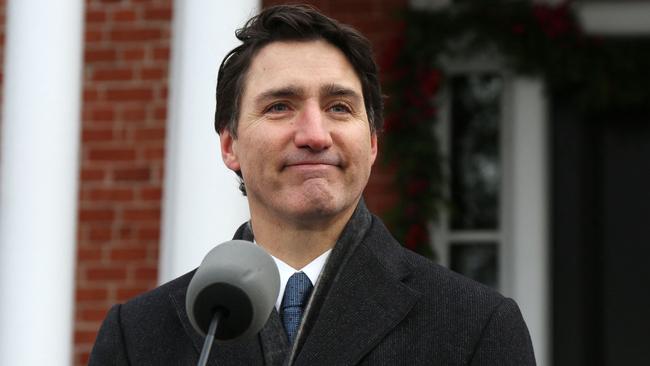
There are no term limits in Canadian politics. While this may sound like a boon to ambitious politicians, it’s actually something of a curse as it allows them to cling to power long after their star has dimmed and their legacies have been compromised.
This is one reason ex-prime ministers and ex-premiers (Brian Mulroney and Jean Chretien being two examples from the former category) are relegated to somewhat grubby professional afterlives as corporate pitch men and lobbyists in their dotage.
Justin Trudeau, who announced his resignation on Monday, presents a particularly sad case study. His Liberals won a commanding parliamentary majority in 2015 and during the first term that followed Trudeau did much to reward voters’ trust.
He faced down Donald Trump’s protectionist threats with patience and tact, increased marginal tax rates on the rich as a means to fight income inequality, legalised marijuana and passed legislation that allowed Canadian adults to access medical assistance in dying – all steps I supported.
Trudeau became a star on the world stage, positioning himself as something of an anti-Trump; but also (at least briefly) a unifying force at home. As I wrote in Foreign Affairs magazine in 2017, the values he then channelled – liberal “in both the modern and classical sense of the word” – are widely shared across the Canadian political spectrum.
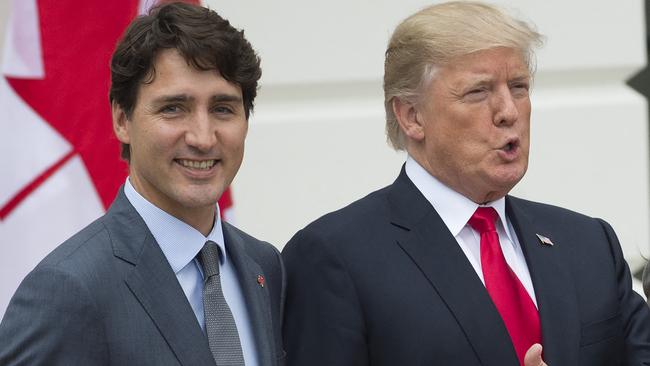
Trudeau’s reputation among Canadians is now at such a low ebb that it’s easy to forget how popular he was during this honeymoon phase. Had he quit politics in 2019, as his star was dimming, he likely would be remembered fondly by most Canadians and would likely have secured some gilded sinecure at a prestigious university, name-brand non-government organisation or even the UN.
Instead he went on to fight in two closely contested elections, losing the popular vote in each to the opposition Conservatives while cobbling together increasingly scandal-plagued minority governments.
I am one of the many Canadians who once truly believed in Trudeau, so much that I put my career at a conservative newspaper in jeopardy by agreeing to ghostwrite his memoirs in 2014. Notwithstanding Conservative efforts to portray Trudeau as a pretty dilettante who was “just not ready” to lead Canada, I found him to be mature, well-informed, serious-minded and, yes, very charming.
I was especially drawn to his effusively expressed patriotic love for Canada – a prominent theme in the book we produced, Common Ground. The 2014-era Trudeau who put his name to that book wasn’t “woke” in the slightest; and, in fact, he explicitly called out political opportunists who wanted to balkanise Canadian society according to skin colour or other superficial markers.
“Identity politics might have been one way of establishing rapport with voters, the kind of divide-and-conquer strategy favoured by the other parties – but I had no intention of going down that road,” Common Ground asserts. “I tried to build common ground around common values that I believed were widely shared.”
These were words I believed Canada needed to hear at the time. The incumbent Conservative prime minister, Stephen Harper, had shown Canadians that right-wing politicians were fully capable of going in for their own kind of identity politics when it suited them, as exemplified by his Zero Tolerance for Barbaric Cultural Practices Act and an associated snitch line that Canadians could call to inform on their neighbours.
Many of my conservative friends seemed quite eager to turn Canada’s 2015 general election into a regional theatre of America’s culture war or even of some grand struggle to save the soul of Western civilisation from our enemies. By comparison, I found Trudeau’s focus on “sunny ways” and the relentlessly upbeat tone of his election campaign to be deeply attractive.
But we all know how this story ends. Rather than reject identity politics and build common ground, Trudeau jumped with both feet into the fever swamps of race and gender politics, eventually turning himself into Canada’s chief diversity, equity and inclusion officer.
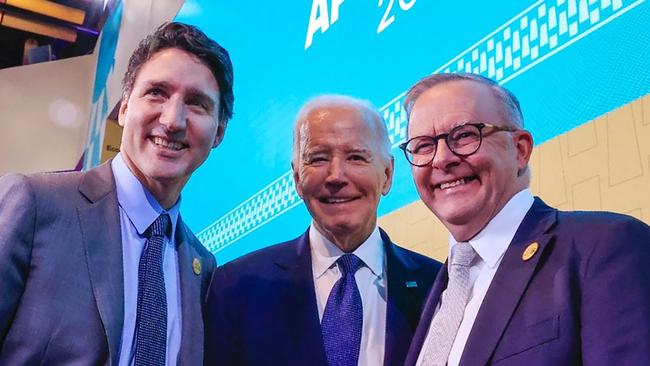
By his second term in office, he was trashing his (supposedly beloved) Canada as a genocide state, tarring conservative opponents as enablers of white supremacy and telling Canadians “systemic racism” infected “all our institutions”. If you disagreed with him on vaccines, this meant you were likely a misogynist and a racist. When it emerged that Trudeau had been a serial blackface enthusiast when he was younger – he couldn’t even count how many times he’d done it, he told reporters – his media cheerleaders insisted that, well, it was really just a symptom of Canadian “anti-blackness” writ large. Our fault, in other words.
When the false rumour that the physical remains of 215 dead indigenous children had been unearthed on the grounds of a former British Columbia school in 2021, Trudeau turned it into an officially sanctioned lie and lowered flags on federal buildings for almost six months. He also took the opportunity to slam Canada for another supposed genocide, this one (which is apparently still going on even as I type these words) against Indigenous women.
Trudeau created an anti-racism strategy and Anti-Racism Secretariat, and showered millions of dollars on dubious left-wing groups that signal-boosted Liberal claims that Canada was awash with right-wing racists.
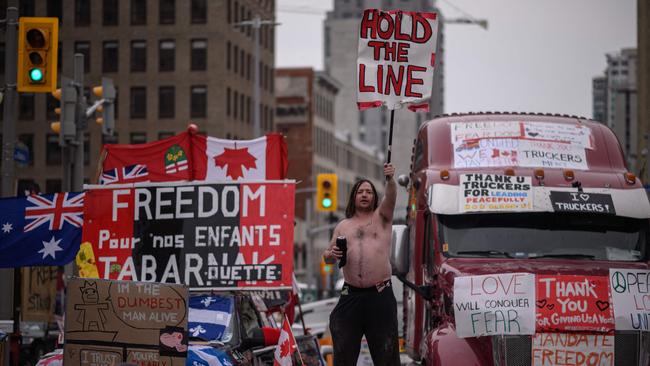
His government funded such an enormous set of anti-racism slush funds that no one could keep track of who was getting paid what: At one point in 2022 it emerged that Trudeau’s Canadian heritage ministry was funding an anti-Semitic bigot named Laith Marouf who toured Canada purporting to educate people about community media, even while publicly denouncing Jews.
Adopting the idiom of a gender studies grad student, Trudeau told cabinet ministers their policymaking had to be “developed through an intersectional lens, including applying frameworks such as Gender-based Analysis Plus”.
Men with female pronouns were allowed into women’s prisons and sports leagues, drag queens were paraded around parliament, Pride Week was turned into a months-long Pride Season, LGBT was replaced in official government documents with the comically unpronounceable term 2SLGBTQI+ and fringe trans activists such as Fae Johnstone were showered with government handouts. The Canada that Trudeau inherited in 2014 was a socially liberal place where gay marriage had become widely accepted, even among conservatives. Yet thanks to the cohort of militant trans activists and avalanche of gaudy rainbow propaganda that Trudeau’s government has funded, the LGB&T communities now face a significant backlash.
Trudeau even performed his social justice shtick on the international stage, where he hectored other leaders about white supremacy. When asked what he’d contributed to a G20 meeting in 2023, he said “gender language” and “indigenous reflections”. Trudeau took a knee to Black Lives Matter when George Floyd died, then performed the same mawkish act when visiting an indigenous reserve in 2021 with a teddy bear.
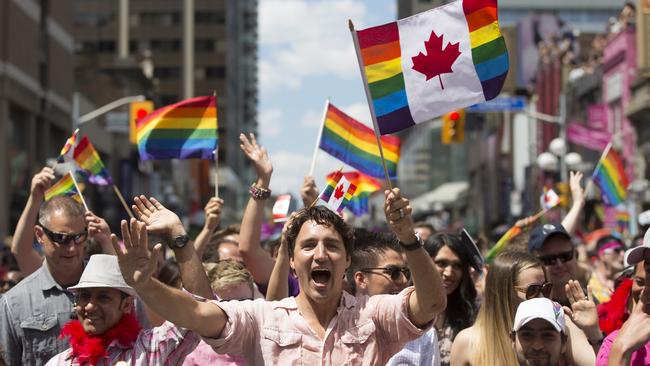
That year, largely thanks to Trudeau, Canada’s national birthday on July 1 was transformed from a celebration into a morbid ritual of repentance.
The rise and fall of Trudeau isn’t just the sad story of one man but a cautionary tale about the corrosive effects of social justice dogma on mainstream politics. Trudeau’s main message – the title of his book, the basis of his appeal, the reason I agreed to help him – was that Canada was a great country and Canadians should focus on their common goals and values.
But the whole doctrinal basis of the (largely American-imported) social justice movement is incompatible with that unifying spirit, as it presents the divisions between races in stark, dystopian, unbridgeable terms. Forced to decide between the two, Trudeau picked the one that seemed more fashionable, betraying his previously articulated values in the process.
If Canada is indeed a genocide state and white Canadians truly are inveterate racists permanently stained by the original sin of white supremacy (not to mention the follow-on ideological crimes of sexism, transphobia and all the rest), what hope is there for common ground? What hope is there even for patriotism in a land of genocide? After listening to Trudeau babble on for so many years about these topics, many of us – myself included – have wondered openly why he’d even want to lead this wretched moral wasteland of “unmarked graves” we call Canada.
This is personal for me and not just because of some book project I wrapped up more than a decade ago. Both my parents hail from immigrant families whose forebears faced murderous anti-Semitism in Europe and Asia. Comparatively speaking, Canada was a paradise for my grandparents. And while it’s absolutely true that the history of this Canadian paradise is stained with injustices visited upon indigenous populations, Canada is not a genocide state. Nor is white supremacy a mainstream creed. And it’s a disgrace to Trudeau’s legacy that he dedicated so much time and energy to trafficking lies about the nation he once claimed to love.
Jonathan Kay is an editor and podcaster with Quillette, and adviser to the Foundation Against Intolerance and Racism. His books include Among the Truthers, Legacy, Panics & Persecutions, and Magic in the Dark.
This article was originally published in Quillette, an Australian-based online magazine that focuses on long-form analysis and cultural commentary / quillette.com





To join the conversation, please log in. Don't have an account? Register
Join the conversation, you are commenting as Logout